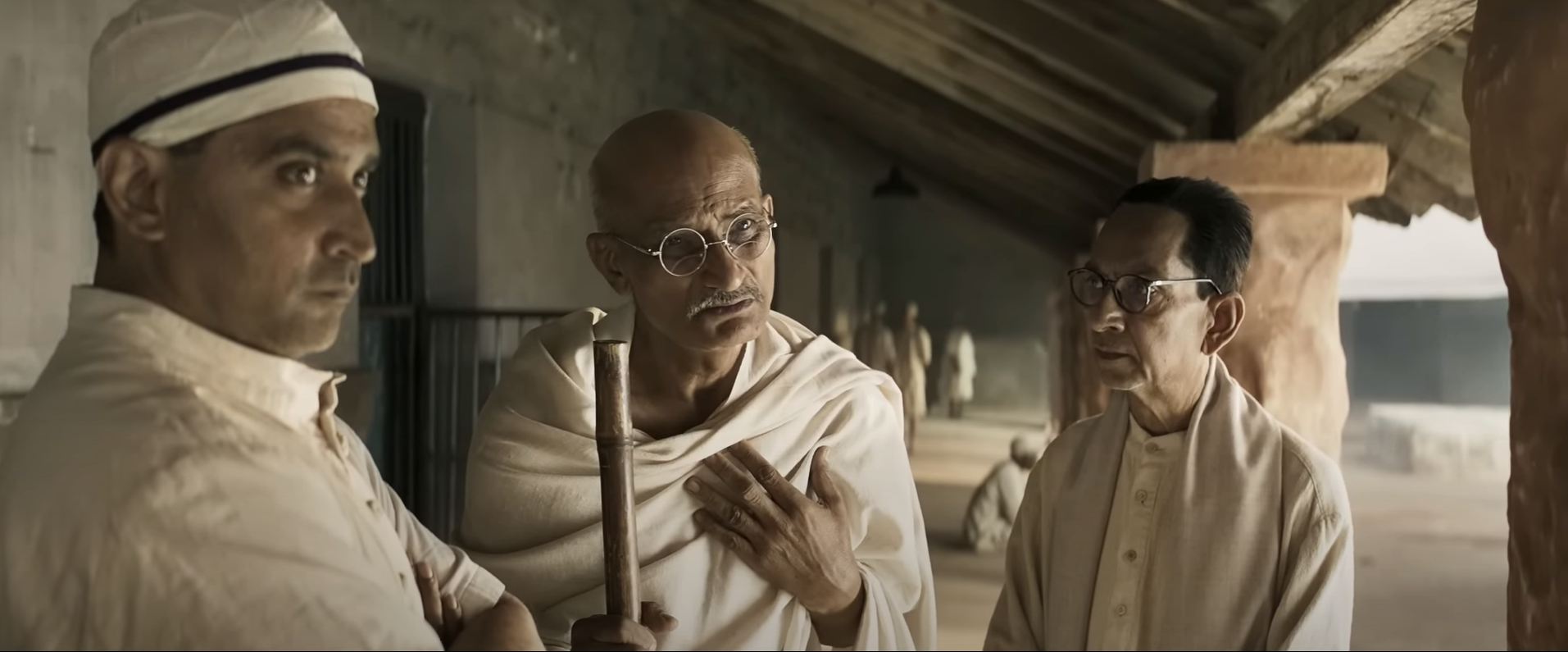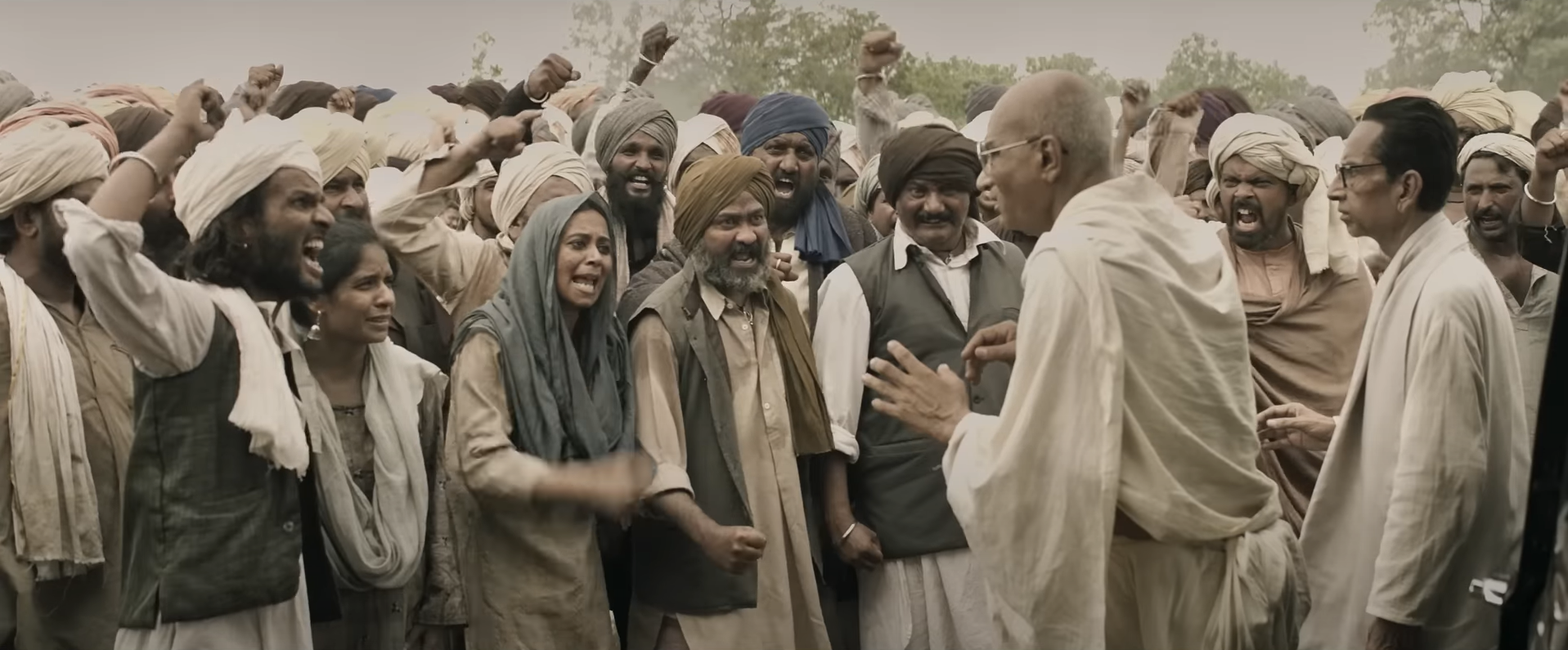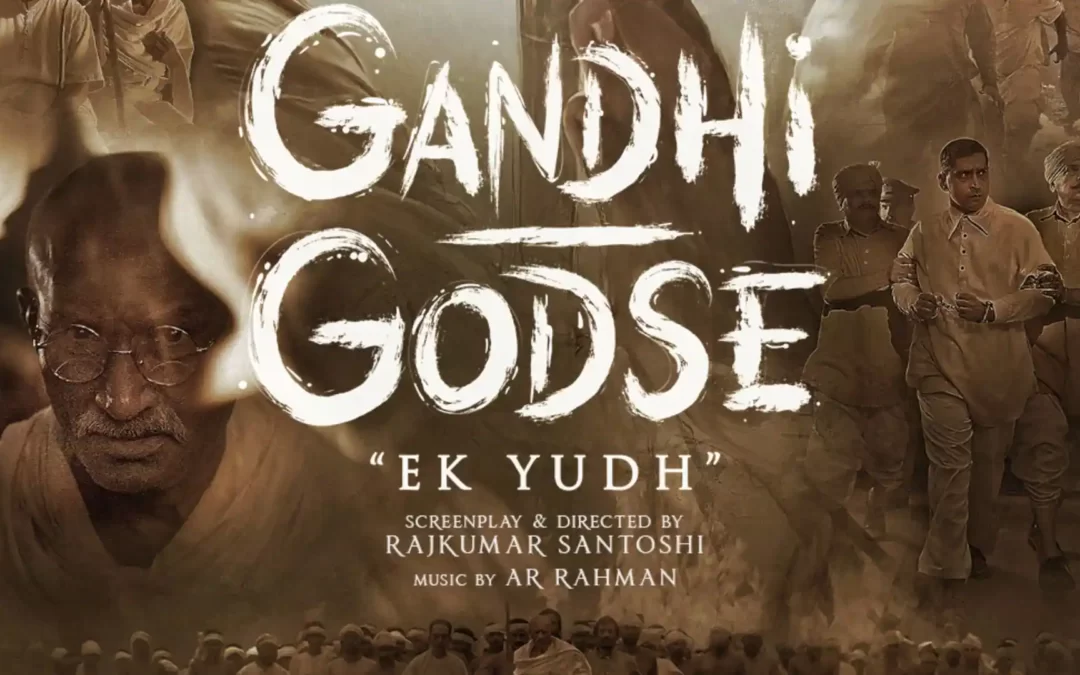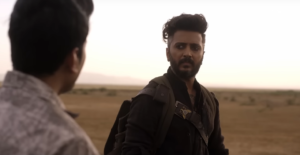PLOT
In this fictionalized tale, Mahatma Gandhi (Deepak Antani) escapes Godse’s (Chinmay Mandlekar) attempt to kill him. The two interact in a prison setting and discuss their opposing philosophies.

REVIEW
Nathuram Godse’s murder and whether it was justified have long been debatable, especially in recent years. Through a confrontation between the event’s two main characters, Gandhi and Godse, Rajkumar Santoshi’s most recent work seeks to depict both sides.
The violence that followed the partition of India and Pakistan is depicted in the film’s opening scene. The complaint against Gandhi for the suffering among the Hindu and Sikh people is swiftly established. Soon enough, Bapu is killed, along with Nathuram Godse’s rage.
After that, though, the movie loses steam, and the first half of the story drags as it attempts to establish the scene. It covers some significant occasions, such as Gandhi’s death-defying fast in support of Hindu-Muslim harmony and the requirements for its end.

Gandhi vs Godse has been a topic of contention since 1948, but the movie does a poor job of portraying it as such because the two of them are imprisoned together. Although the protagonists’ opposing philosophies, postures, and actions overlap, their verbal combat is not particularly fascinating.
The excursion also addresses Gandhiji’s efforts to alleviate economic or humanitarian exploitations and construct equality and justice through the Gram Swaraj Movement, as well as social issues like untouchability and casteism. These are superficially depicted through a series of occurrences designed to demonstrate how a narrative and public opinion can be managed.
Deepak Antani and Chinmay Mandlekar have significant similarities to Gandhi and Godse. The actors’ diction and mannerisms are spot on. Well-done portrayals are also given to other historical leaders, such as Jawaharlal Nehru (Pawan Chopra), Babasaheb Ambedkar, Maulana Azad, and Sardar Patel (Ghanshyam Srivastav). Also introduced by Gandhi Godse is Tanisha Santoshi as Sushma and Anuj Saini as Naren. The latter is merely adequate, whereas the first exhibits promise.

The drama is kept engrossing by Rajkumar Santoshi’s directing on occasion, but the film’s treatment and Rishi Punjabi’s cinematography, with the light play and macro videography, merit note. There are skillfully reconstructed historical settings and Partition-era occurrences. Impactful discussion by Asghar Wajahat.
The movie does examine several of Gandhi’s beliefs critically, including his celibacy stance. His vision of Kasturba Gandhi shows some responsibility, telling him that he had harmed her personally, by Jayprakash Narayan, Harilal (Hiralal), and Manilal Gandhi, or by Godse reminding him of other leaders. AR Rahman’s soundtrack enhances Vaishnav Jan To and Raghupati Raghav’s dramatic performances.
Rating – Four out of five stars.
Gandhi Godse: If you can endure the first half of Ek Yudh with patience, you should be able to see the second half, which is riveting.
Manila and Rajkumar Santoshi collaborated on the film’s writing, directing, and producing. Starring in it are Deepak Antani, Chinmay Mandlekar, Tanisha Santoshi, Arif Zakaria, Pawan Chopra, and Mukund Pathak. It was published on January 26, 2023. After a few months, it will be formally offered on the OTT platform.




